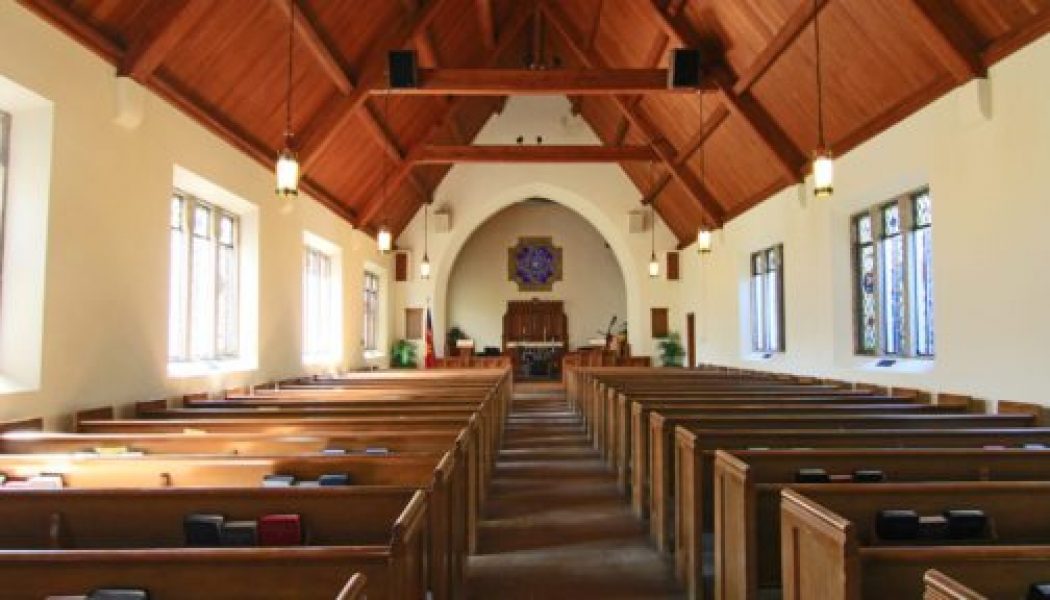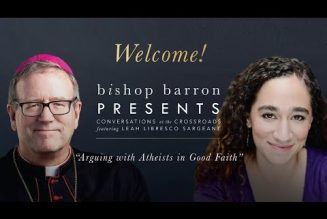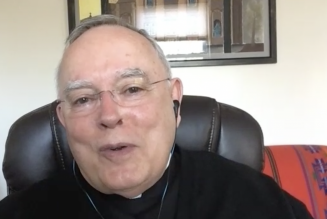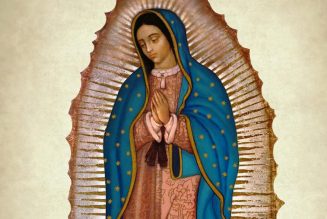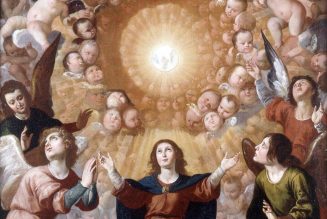 The coronavirus/Covid-19 pandemic has produced many questions and controversies, including how it is impacting people’s ability to attend Mass and receive the sacraments.
The coronavirus/Covid-19 pandemic has produced many questions and controversies, including how it is impacting people’s ability to attend Mass and receive the sacraments.
How dangerous is the virus? What should be our response as Catholics?
Here are eight things to know and share.
1) How dangerous is the coronavirus?
Nobody knows for sure. The virus only emerged a few months ago, so doctors are only now getting experience with it.
Some have compared Covid-19 to the flu, which is a well-understood and predictable disease.
It appears that Covid-19 is much more infectious than the flu. A person with the flu will infect an average of 1.3 other people, but a person with Covid-19 will infect an average of between 2 and 3.11 additional people. Covid-19 thus has the chance to spread much more rapidly.
Covid-19 is also much deadlier than the flu. In the United States, the death rate for the flu is usually around 0.1%. The death rate for Covid-19 is not yet well understood, but it appears to be between 1.4% and 2.3%—making it between 14 and 23 times more deadly than the flu.
While it is true that—at present—more people are killed by the flu than by Covid-19, governments and health authorities are working to keep the latter from becoming as common as the flu.
There are around 27 million cases of flu each year in the U.S., resulting in around 36,000 deaths. If COVID became as common as the flu (and, remember, it’s actually more infectious than the flu), there would be around 500,000 deaths.
This is what authorities are trying to prevent.
Current Center for Disease Control guidelines for how to protect yourself are online here.
2) Is everyone equally at risk?
No. Covid-19 hits certain people much harder than others. People younger than 60 are much less likely to die because of the disease, though they can still catch and spread it.
They may even have it but not feel sick and yet spread it to others. In fact, a recent study suggests that more than 80% of current cases were spread by people who did not know they had the virus.
People older than 60 are much more likely to die, and the risk increases with each decade of age.
People with other underlying conditions, such as high blood pressure, diabetes, and cardiovascular disease also have increased risk of dying.
Current Center for Disease Control guidelines for how to protect yourself are online here.
3) Why are bishops cancelling Masses and dispensing people from their Sunday obligations? Aren’t Christians called to be martyrs?
Christians are called to be martyrs when we are forced into the situation. If we are directly asked if we are followers of Christ, we cannot disown our faith. “If we deny him, he also will deny us” (2 Tim. 2:12).
However, this doesn’t mean we are called to rush into martyrdom. In fact, Jesus said that we can flee persecution for our faith: “When they persecute you in one town, flee to the next” (Matt. 10:23).
The requirement to witness to our faith thus does not mean Christians can’t take reasonable steps to protect themselves from physical danger.
If it is morally permissible to leave town to avoid one physical danger (being killed by people who hate our faith), so is staying home from Mass for a few weeks to avoid another physical danger (being killed by a plague).
4) Are bishops being too quick to cancel Mass?
The Eucharist is “the source and summit of the Christian life” (Lumen Gentium 11), so no bishop will take the decision to suspend Masses lightly.
The decision involves a prudential judgment call, so there is no single answer that obviously applies in all situations. This means the faithful should pray for the bishops as they wrestle with this issue and show respect for the difficult decisions they are having to make.
They also should bear in mind that:
- The conditions in some areas are much worse than others.
- In some places, bishops may not have much of a choice, as public authorities have prohibited public gatherings over a certain size.
- Epidemics grow exponentially, so the only way to stop them is to take early action—before the situation becomes severe. If you wait until an epidemic has gotten really bad in an area, it is too late.
5) When are people allowed to stay home from Mass?
People are allowed to stay home from Mass in three situations:
- When one has a legitimate excuse (e.g., because a person is at elevated risk of acquiring Covid-19)
- When one is dispensed by the competent authority (e.g., the pastor or bishop)
- When it is impossible to go (e.g., because Masses have been cancelled)
6) On what basis can pastors and bishops dispense a person?
The Code of Canon Law provides that the pastor of a parish can give a dispensation in individual cases, as can the superiors of religious institutes (can. 1245).
The bishop’s authority is greater. He can “dispense the faithful from universal and particular disciplinary laws issued for his territory” by the Vatican (can. 87 §1). This is the category of laws that the Sunday obligation belongs to.
7) What should we do if staying home from Mass?
One is not legally obligated to do anything on these days. However, the Church strongly recommends that the faithful undertake another form of spiritual activity:
If participation in the eucharistic celebration becomes impossible because of the absence of a sacred minister or for another grave cause, it is strongly recommended that the faithful take part in a liturgy of the word if such a liturgy is celebrated in a parish church or other sacred place according to the prescripts of the diocesan bishop or that they devote themselves to prayer for a suitable time alone, as a family, or, as the occasion permits, in groups of families (can. 1248 §2).
Watching a Mass on television or the Internet also is a possibility, and some parishes and dioceses stream Masses on their web sites.
Participating in the Liturgy of the Hours is another possibility (can. 1174 §2), as are reading the Bible or spiritual works.
8) What should I do if I’m not sure whether I’m getting sick?
Err on the side of caution. With many diseases, people are most infectious just before they start feeling sick and just after they start having symptoms. Therefore, if you think you might be getting sick, you may be at the point where you have the greatest chance of infecting another person.
Even if you do not feel sick, you may be able to spread the virus to others, so it is important to follow safety practices even if you currently feel fine.
This applies especially if you have contact with older people or those with health conditions that put them at greater risk of dying from Covid-19.
Remember: We are not just protecting ourselves; we are protecting those around us.
If we don’t have the virus, we can’t give it to others. Even if we’re young and healthy, we’re protecting the more vulnerable. That is a physical work of mercy, and it’s an act of love for others. As Jesus taught us, “You shall love your neighbor as yourself” (Mark 12:31).
